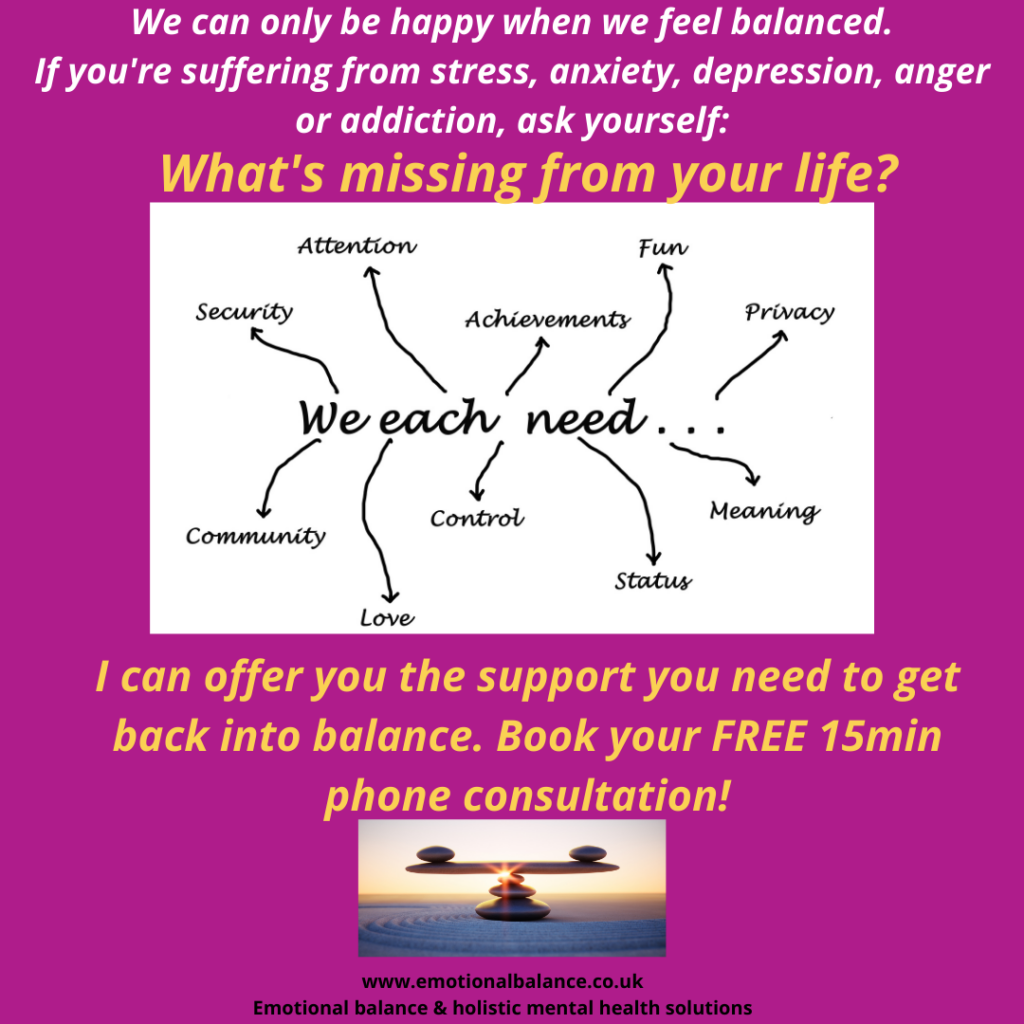Did you know that several studies have found that a random act of kindness can help you feel better and less depressed? According to healthday.com “A growing body of research has found that ‘positive activity intervention’ can serve as effective low cost treatment for depression”. It’s the little things that count, like being friendly to a stranger, walking a neighbour’s dog, giving praise or a compliment, helping someone with their shopping or writing a thank you note to people who have helped you in the past. When we help someone else we shift our internal focus outwards which is beneficial. Being of service can give us a sense of meaning or achievement on a small scale, something that people with depression are often lacking.
We all have certain emotional needs and if these aren’t met, we start feeling out of balance which can eventually lead to mental health problems. So if you’re not happy or perhaps even suffering from depression, ask yourself what’s missing from your life? Are you part of a community? Do you feel in control of your life? Do you feel safe and secure in all areas of your life? Do you feel loved and appreciated the way you are by a person or pet? What do you do to have fun? Do you feel you give and receive enough attention?

Sometimes depression can lead us to only focus on ourselves, hiding or shutting out other people as we don’t think they can help us. But what if helping them can make us feel better too? By giving them our attention and doing something nice, we lift our own spirit.
Awareness is the first step towards change, so take a moment to think about what’s missing from your life. Also consider random acts of kindness and watch how your feelings change when you do something nice for someone else. If everyone commited to a small favour to one other person every day, we’d all help create a happier community for us to live in. What goes around comes around.
Personally I like to do charity work. I regularly donate money and items to charities, I have volunteered at animal shelters and now I’m organising a sponsored walk to raise money for rescue dogs. In fact, if you live in East Sussex, why not come along for a lovely walk in nature on Sunday 22nd May. Bring your dog or a friend and if you have a few spare pounds to donate, that’d be absolutely awesome and it’s a win-win as you’ll feel better by doing something for someone else, like helping dogs in need, not to mention enjoying a lovely nature walk and meeting some lovely people and dogs.

Going back to my original point, doing something nice and heart-felt is profoundly beneficial for our own emotional balance and if done on a regular basis can help reduce depression. How about making a small list of genuine things you would be able and prepared to do, such as paying someone a compliment, smile at a stranger, help an elderly person lift something heavy, pray for someone, volunteer or donate something, bake a cake for someone, help a neighbour with their garden work, pick up litter in a nearby park, show gratitude and appreciation, etc.
“Slow steady progress is better than daily excuses” (Robin Sharma). So think of something you can do today. Perhaps you’d like to help me spread the word about my upcoming charity walk? The more people we reach, the better and if you’re not in the area but still would like to make a small donation, get in touch and I’ll tell you how.

Thanks for reading. Have a lovely day.
Love, Sandy x





